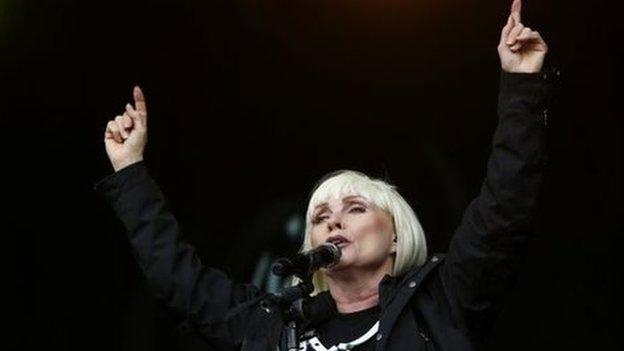Disabled music fans face ticketing barriers
- Published
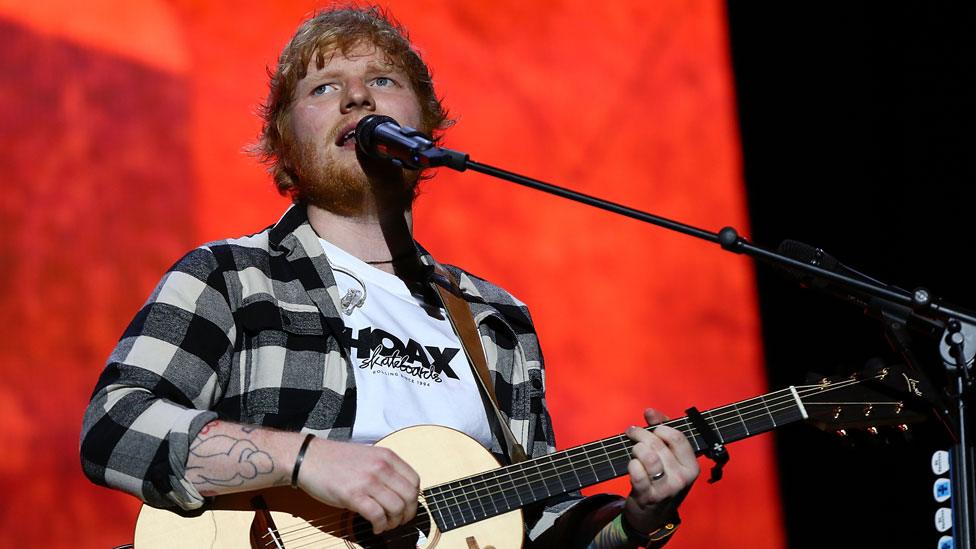
Hundreds of deaf and disabled music fans still experience problems purchasing tickets to live concerts and festivals, a new report has found.
The report, from the UK charity Attitude is Everything, external, reveals that 82% of deaf and disabled music lovers questioned had difficulties booking tickets to live music events, while more than 73% felt discriminated against.
It also found that one in 10 had considered legal action.
The main gripes included premium rate booking lines, the lack of accessible tickets and online booking systems.
Why are people with disabilities still struggling to get into some music gigs? You & Yours investigates
When tickets for Ed Sheeran's Divide tour went on sale last year, many disabled fans complained they couldn't reach the accessible booking line as it had been taken over by fans trying to obtain general tickets.
Jacob Adams, research and campaigns manager for Attitude is Everything, said: "Ticketing is still one of the biggest issues we get contacted about by live music fans.
"This is particularly the case when it comes to one-off gigs outdoors and in larger arenas where there are often multiple companies selling tickets. It's a complicated picture."
According to government statistics, 3.3 million disabled people went to a live music event in the past year and disabled music fans make up 11% of the live music audience.
Attitude is Everything believes that the industry could be potentially missing out on millions of pounds due to poor ticketing systems.
Seventy-nine percent of survey respondents said they had been put off buying tickets due to problems booking access.
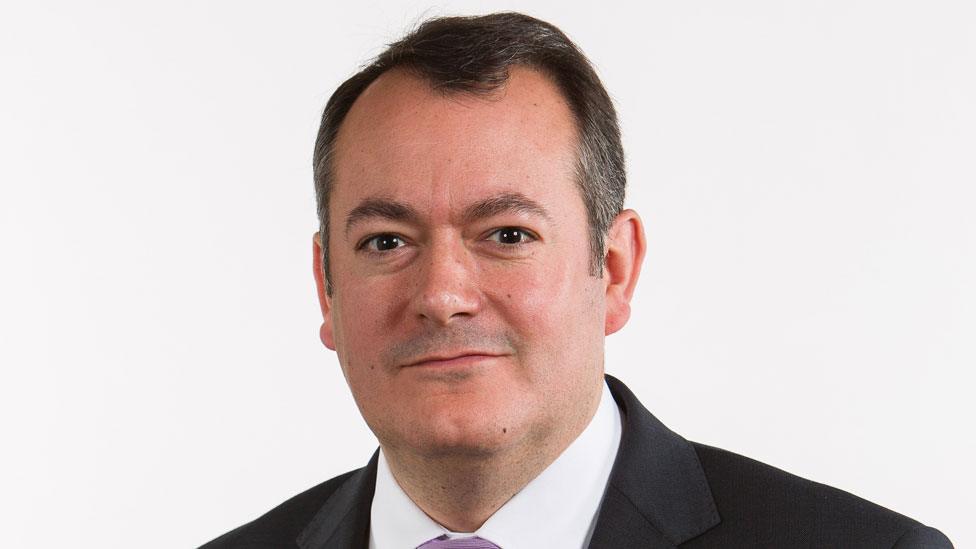
"No one should be denied the right to experience a live music event," says former MP Michael Dugher
Michael Dugher, CEO of UK Music, external, feels that more needs to be done. "What we need is more comprehensive action," he says.
"You can make a venue or festival as accessible as you like, but if buying a ticket becomes an insurmountable barrier to disabled customers, then event organisers will risk falling short at the first hurdle."
He added: "Britain is the best place in the world for live music. No one should ever be denied the right to experience a live music event."
The Access to Music report follows a survey carried out by Attitude is Everything in 2014 which revealed 95% of deaf and disabled music fans faced ticketing barriers.
While improvements have been made, mystery shoppers have complained of poorly trained booking staff and a lack of accessible pre-sale and VIP tickets, as well as artist meet-ups.
Along with 38 venues and ticketing companies, the charity is launching a new government-backed coalition, Ticketing Without Barriers, external, at the Roundhouse in London to help tackle these issues.
Recommendations include the use of access cards and a universal system to help identify fans' needs.
"Everybody in the industry now needs to take responsibility including artists," says Jacob Adams.
"There's lots of competition across the live music market. but access shouldn't be one of those things."

Ruth's Story
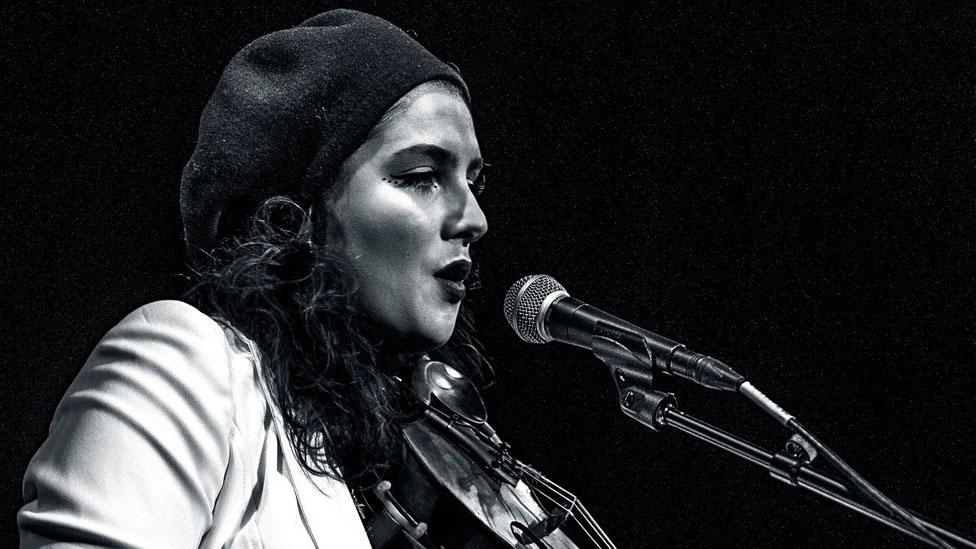
Ruth Patterson is a music lover and the lead singer of Holy Moly and The Crackers, external.
"When I was 15 years old I was diagnosed with rheumatoid arthritis and at 21 with Ehlers-Danlos syndrome, which is a hypermobility disorder that means my joints dislocate easily and I have to use a wheelchair outside of the house.
"While I've had some good experiences of buying tickets for gigs, I've also had some pretty bad ones as artists and venues tend to use different ticketing systems.
"At Newcastle City Hall and at the O2 Academy in Newcastle, I had to get a doctor's note to prove my disability. And for City Hall it had to be within a certain time-frame or else it would have been invalid.
"While I'm not against proving my disability, I resent the amount of time this takes, particularly when you're promised access and when you get to the gig the venue clearly isn't accessible.
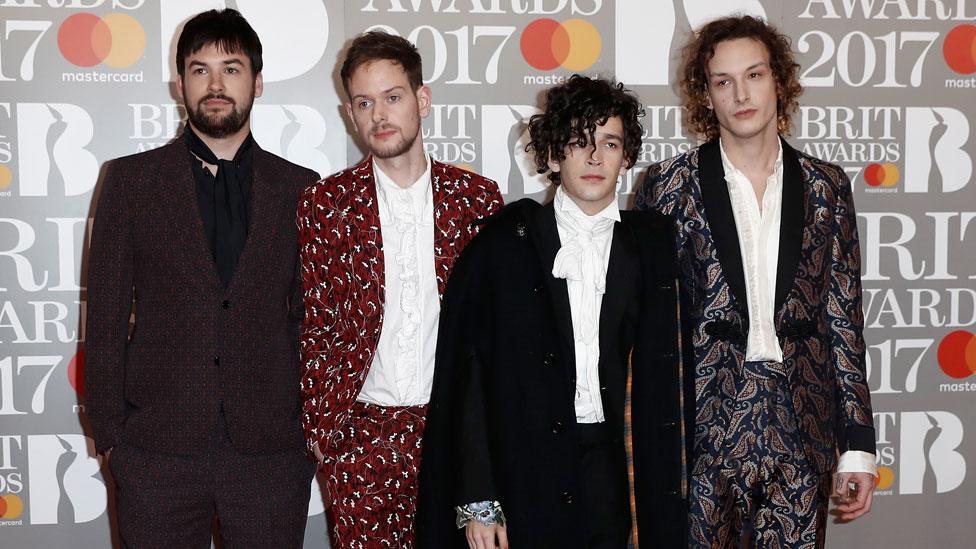
L to R: Ross McDonald, Matty Healy, George Daniel and Adam Hann of The 1975
"This happened when I went to see The 1975 at the O2. I had to speak to various different people to purchase a priority ticket, but when I got to the venue I was told I'd have to queue outside even though it was cold and pouring with rain.
"Once inside, we found the bar inaccessible and the staff were not willing to help us buy drinks. There were also drunk people standing in front of us so we couldn't see the band performing on stage. I personally resent paying £45 a ticket for this.
"I find that booking staff can often be a bit clueless or patronising when it comes to my needs. It's embarrassing when they ask lots of personal questions, like 'do you need help getting to the toilet?'
"Sometimes it's like they're almost doing you a favour, letting you see a band, particularly the ones that sell out quickly.
"As a disabled artist I'd be angry and sad if disabled fans that came to see us had to go through similar experiences."

Follow us on Facebook, external, on Twitter @BBCNewsEnts, external, or on Instagram at bbcnewsents, external. If you have a story suggestion email entertainment.news@bbc.co.uk.
- Published28 August 2017
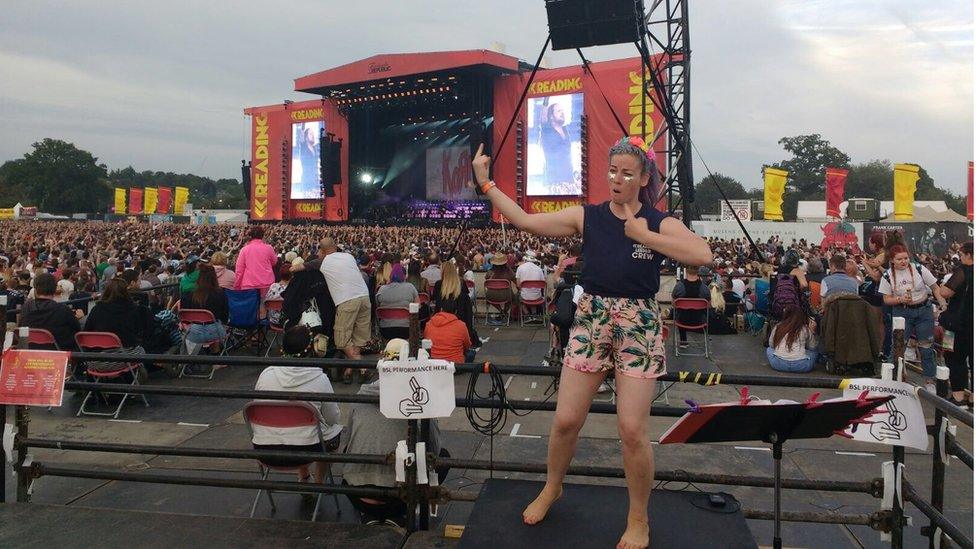
- Published21 February 2017
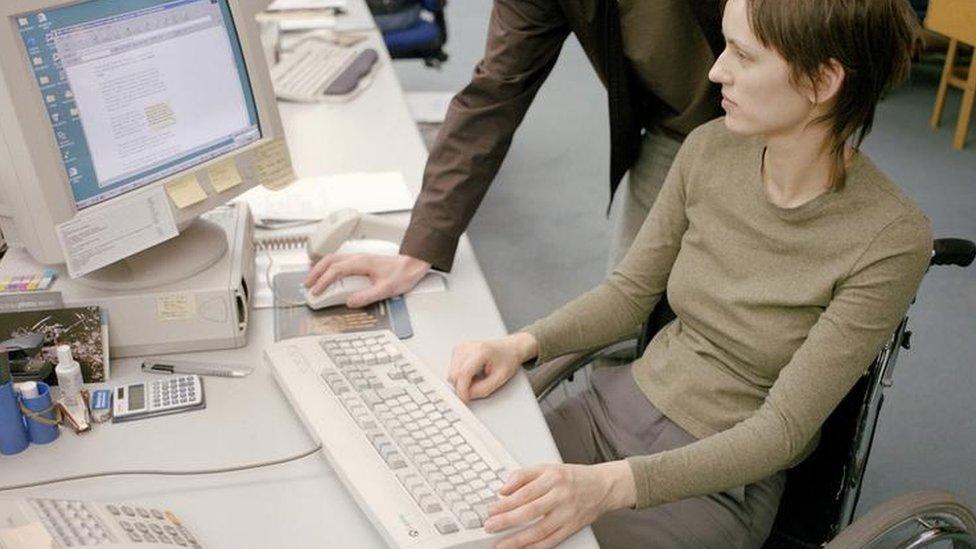
- Published29 June 2014
